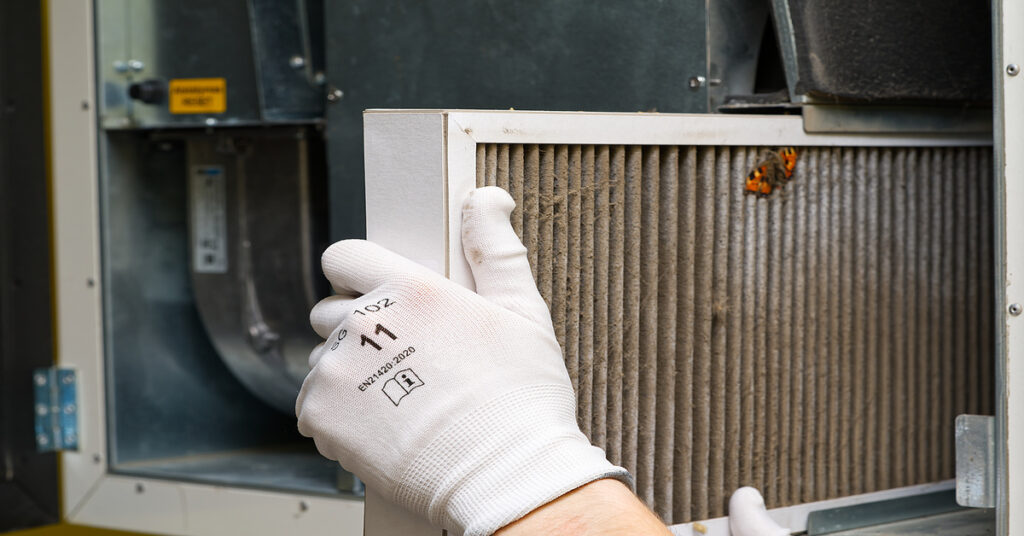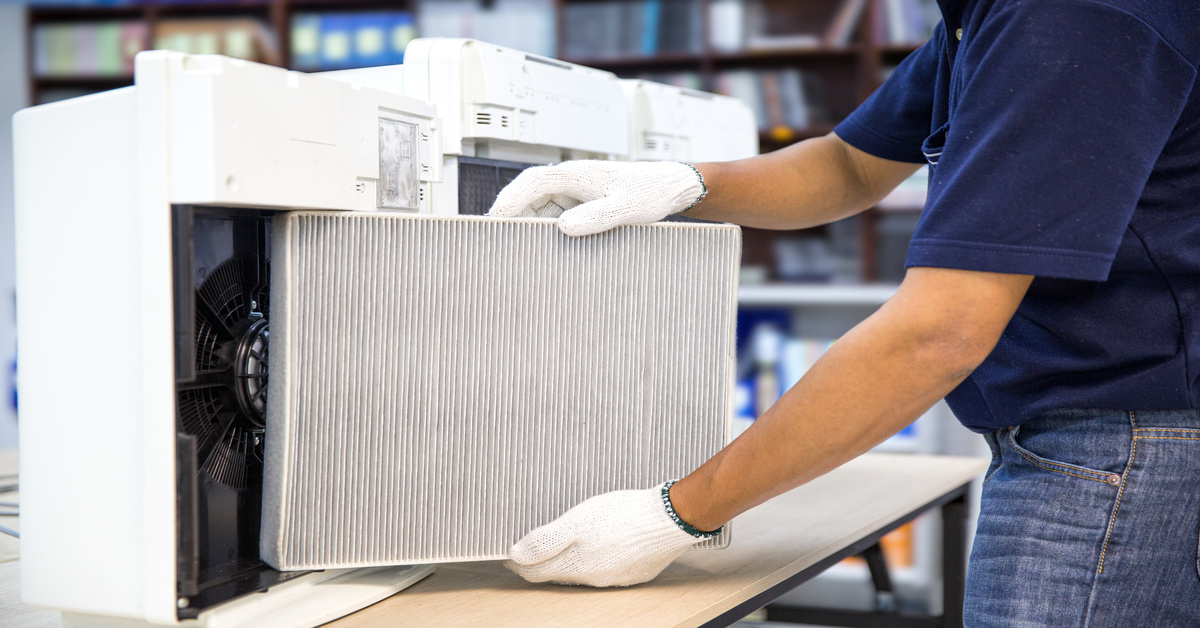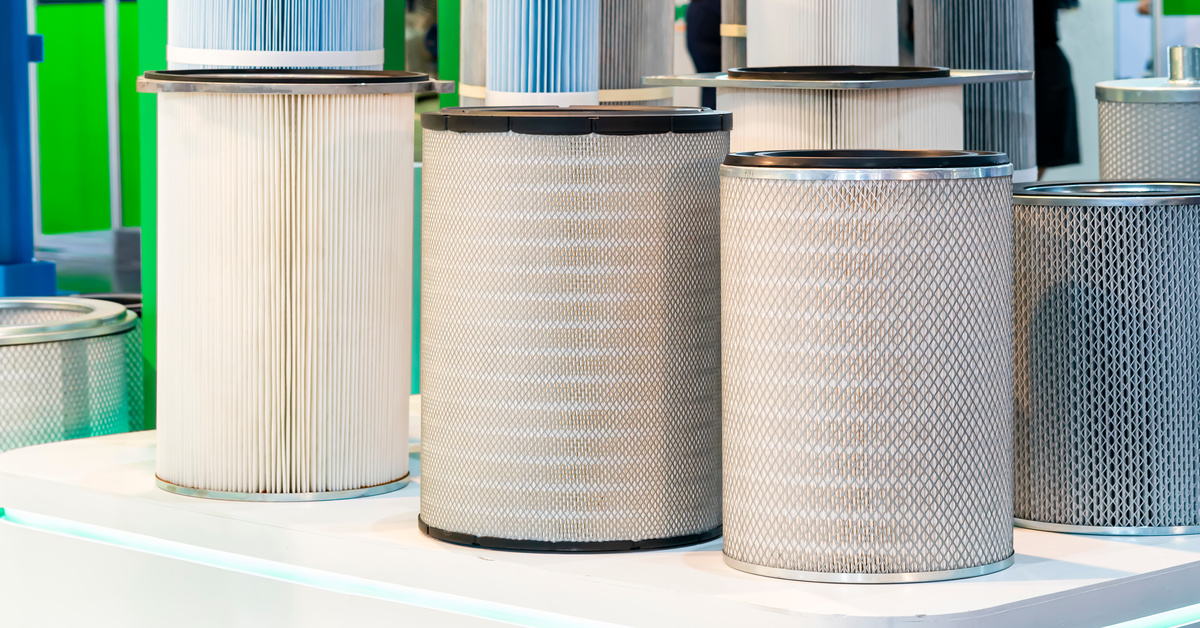Clean air filters significantly impact industrial equipment performance. While often overlooked, these seemingly simple components play a crucial role in maintaining optimal equipment efficiency, reducing energy consumption, and extending machinery lifespan. Understanding how clean air filters improve equipment efficiency can save businesses thousands of dollars in energy costs and prevent costly equipment failures.
The impact of air filter maintenance extends far beyond basic dust removal. Clean filters ensure proper airflow, maintain optimal operating temperatures, and protect sensitive internal components from contamination. When air filters become clogged or dirty, equipment must work harder to achieve the same results, leading to increased energy consumption, reduced performance, and accelerated wear on critical components.
How Air Filters Work
Air filters function through a combination of physical and mechanical processes designed to remove contaminants from incoming air streams. The filtration process begins when air passes through the filter media, which consists of fibrous materials arranged to create a maze-like pathway. As air navigates these pathways, particles become trapped through three primary mechanisms: impaction, interception, and diffusion.
Impaction occurs when larger particles collide directly with filter fibers due to their momentum. Interception happens when particles follow air streamlines that pass close enough to fibers for capture. Diffusion affects the smallest particles, which move erratically and eventually contact filter fibers.
The effectiveness of this process depends heavily on filter cleanliness. When filters accumulate debris, the available surface area for filtration decreases, forcing air to move through smaller openings at higher velocities. This creates increased resistance, commonly referred to as pressure drop, which directly impacts equipment efficiency.
Impact of Dirty Filters on Equipment Performance
Dirty air filters create a cascade of performance issues that compound over time. As filters become clogged, airflow restriction increases, forcing fans and blowers to work harder to maintain necessary air circulation. This increased workload translates directly into higher energy consumption and increased operating costs.
Temperature Regulation
Temperature regulation becomes compromised when air filters cannot facilitate proper airflow. Equipment operating with restricted airflow experiences inadequate cooling, leading to overheating conditions that trigger thermal protection systems or cause components to operate outside their design parameters. Elevated temperatures accelerate component degradation and increase the likelihood of unexpected failures.
System Pressure Relationships
The restriction caused by dirty filters also affects system pressure relationships. HVAC systems, for example, may struggle to maintain proper pressure differentials between spaces, compromising their ability to provide adequate ventilation or climate control. Manufacturing equipment may experience similar pressure-related issues that affect process consistency and product quality.
Internal Contamination
Internal contamination becomes a significant concern when filters fail to capture particles effectively. Dust and debris that bypass compromised filters accumulate on sensitive components such as heat exchangers, electronic controls, and moving parts. This contamination reduces heat transfer efficiency, causes electrical malfunctions, and increases friction in mechanical components.
Types of Air Filters
Understanding the various types of air filters available helps in selecting the most appropriate option for specific equipment needs. Different filters target various contaminants, such as dust, pollen, or bacteria, ensuring optimal performance and protection for your equipment.
Mechanical Filters
Mechanical filters are the most common category, utilizing physical barriers to capture particles. These include pleated filters, which offer increased surface area in compact designs, and panel filters that provide basic filtration for less demanding applications.
HEPA Filters
High-efficiency particulate air filters, commonly known as HEPA filters, provide exceptional particle removal capabilities. These filters excel in applications requiring ultra-clean air, such as pharmaceutical manufacturing, electronics production, and critical manufacturing processes. However, their high efficiency comes with increased pressure drop, requiring more powerful air handling equipment.
Electrostatic Filters
Electrostatic filters use electrical charges to attract and capture particles. These filters can be either disposable or washable, with washable versions offering long-term cost advantages in appropriate applications. Proper electrical charge, as well as humidity and contamination levels, determines the effectiveness of electrostatic filters.
Activated Carbon Filters
Activated carbon filters specialize in removing gaseous contaminants and odors rather than particulate matter. These filters often work in combination with mechanical filters to provide comprehensive air cleaning in applications where both particle removal and gas phase filtration are necessary.
Choosing the Right Air Filter
Operating Environment
The operating environment plays a crucial role in filter selection. High-dust environments, such as industrial sites or outdoor construction areas, demand more robust and durable filtration solutions to handle the increased particle load and maintain performance over time. In contrast, clean indoor applications, like office spaces or residential settings, typically require less intensive filtration, focusing more on maintaining air quality and comfort.
Equipment Specifications
Equipment specifications determine the physical constraints for filter selection. Filter dimensions, mounting configurations, and pressure drop limitations must align with equipment design parameters. Installing filters with excessive pressure drop can strain equipment beyond design limits, while filters with insufficient capacity may require frequent replacement.
Particle Size Distribution
Particle size distribution in the application environment influences filter efficiency requirements. Environments with predominantly large particles may perform well with lower-efficiency filters, while applications with fine particles or critical cleanliness requirements necessitate higher-efficiency options.
Maintenance Accessibility
Maintenance accessibility affects the practical aspects of filter selection. Filters installed in difficult-to-reach locations may benefit from longer service intervals, even if initial costs are higher. Conversely, easily accessible installations may accommodate more frequent filter changes with lower-cost options.
Maintenance Tips
Establishing a proactive maintenance schedule is essential for effective air filter management. Regular inspection intervals should be based on operating conditions, with high-dust environments requiring more frequent attention than clean applications. Visual inspection can reveal obvious signs of contamination, but pressure drop measurements provide more accurate assessments of filter condition.
Proper handling during filter replacement prevents damage that could compromise performance. Install filters according to manufacturer specifications, ensuring proper sealing and orientation. Observe airflow direction indicators, as incorrect installation can significantly reduce filtration efficiency.
Environmental conditions around filter installations affect service life and performance. Maintaining appropriate humidity levels prevents moisture-related problems that can promote microbial growth or cause filter media degradation. Temperature control helps preserve filter integrity and prevents thermal damage to sensitive filter materials.
Documentation of filter changes and performance measurements creates valuable data for optimizing maintenance schedules. Monitoring pressure drop trends over time uncovers patterns that can predict the ideal replacement intervals and detect potential system issues early, preventing costly equipment damage.
Maximizing Equipment Performance Through Professional Filter Care
Understanding how clean air filters improve equipment efficiency is essential. Regular maintenance of air filtration systems provides immediate benefits through improved airflow, reduced energy consumption, and enhanced equipment reliability. Long-term advantages include extended equipment lifespan, reduced maintenance costs, and improved process consistency.
Clean Air Filters provides professional air filter cleaning services designed to keep your industrial air filters operating at peak efficiency. Our specialized cleaning processes remove accumulated contaminants while preserving filter integrity, helping you maximize equipment performance while minimizing operational costs. Contact us today to learn how our filter cleaning services can improve your equipment efficiency and reduce your maintenance expenses.



